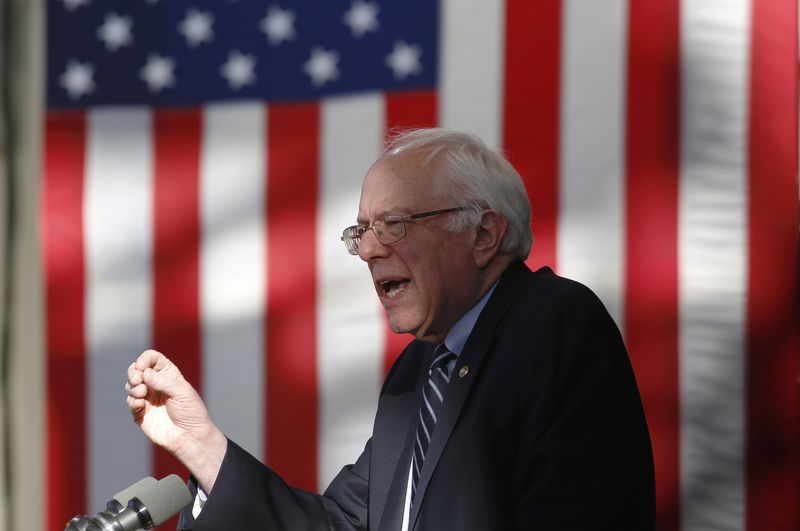By Luciana Lopez and Steve Holland
LAS VEGAS/COLUMBIA, S.C. (Reuters) - Democratic presidential candidate Hillary Clinton beat back a strong challenge from Bernie Sanders in the Nevada caucuses on Saturday, a result that could help calm Democratic Party worries about the strength of her campaign.
Clinton's victory denied Sanders the breakthrough win he sought in a state with a heavy minority population, but his ability to close a one-time double-digit polling lead for Clinton suggested the Democratic nominating race would be long and hard fought.
With 79 percent of precincts reporting, Clinton was leading with 52.1 percent of the vote to Sanders' 47.8 percent. Vote counting was delayed in Nevada by heavy turnout.
Republicans in South Carolina also were voting on Saturday in the state-by-state contest to pick nominees for the Nov. 8 election.
Clinton's victory buoyed worried supporters and gave her fresh momentum as she heads into the next contest in South Carolina on Feb. 27, where polls show her with a double-digit lead largely as a result of heavy support from black voters.
"Some may have doubted us, but we never doubted each other," she told cheering supporters at a victory rally in Las Vegas. "This is your campaign."
Sanders vowed to fight on and set his sights on the 11 states that vote on "Super Tuesday," March 1. He predicted that when Democrats gather for their nominating convention in Philadelphia in July, We are going to see the results of one of the great political upsets in the history of the United States."
"The wind is at our banks," he said. "We have the momentum."
After routing Clinton in New Hampshire and finishing a strong second in Iowa, states with nearly all-white populations, Sanders had hoped to prove in Nevada that he could win over black and Hispanic voters and compete nationally as the race moves to states with more diverse populations.
But entrance polling in Nevada showed he badly lost among black voters, by 76 percent to 22 percent, a bad omen for South Carolina and other southern states with big black populations. He did win among Hispanics by 53 percent to 45 percent.
Clinton's campaign has argued she would assert control of the Democratic race once it moved to more diverse states with black and Hispanic populations who have traditionally backed Clinton and have been slow to warm to Sanders.
In the Republican contest in South Carolina, opinion polls showed front-runner Donald Trump trying to solidify his spot at the top of the pack and rivals Ted Cruz and Marco Rubio fighting for a second-place finish.
Behind them, Republican candidates Jeb Bush, John Kasich and Ben Carson could be vying in South Carolina to keep their campaigns alive before the presidential race rapidly picks up steam in March when dozens of states hold nominating contests.
On the Republican side, front-runner Trump created some last-minute drama in South Carolina after Pope Francis said on Thursday his views on U.S. immigration were "not Christian." Trump initially called Francis "disgraceful," but later called him "a wonderful guy."
The Vatican later clarified the pope's remarks, saying they were "in no way" a personal attack and were not an indication how to vote.

Trump also called for a boycott of Apple Inc (O:AAPL) products until the tech company agreed to help the U.S. government unlock the cellphone of one of the killers in last year's San Bernardino, California, shooting.